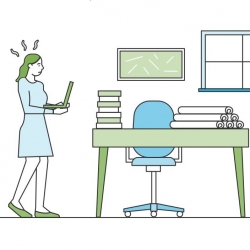To provide the best experiences, we use technologies like cookies to store and/or access device information. Consenting to these technologies will allow us to process data such as browsing behaviour or unique IDs on this site. Not consenting or withdrawing consent, may adversely affect certain features and functions.
The technical storage or access is strictly necessary for the legitimate purpose of enabling the use of a specific service explicitly requested by the subscriber or user, or for the sole purpose of carrying out the transmission of a communication over an electronic communications network.
The technical storage or access is necessary for the legitimate purpose of storing preferences that are not requested by the subscriber or user.
The technical storage or access that is used exclusively for statistical purposes.
The technical storage or access that is used exclusively for anonymous statistical purposes. Without a subpoena, voluntary compliance on the part of your Internet Service Provider, or additional records from a third party, information stored or retrieved for this purpose alone cannot usually be used to identify you.
The technical storage or access is required to create user profiles to send advertising, or to track the user on a website or across several websites for similar marketing purposes.
 A new poll from AA Driving School suggests that around half (51 percent) of British parents find their job prevents them from finding a healthy work life balance, due to childcare and cost of living pressures. Increases to the cost of childcare have driven UK parents to work either additional hours in their current job (18 percent) or even take another job (12 percent) to financially support their family. (more…)
A new poll from AA Driving School suggests that around half (51 percent) of British parents find their job prevents them from finding a healthy work life balance, due to childcare and cost of living pressures. Increases to the cost of childcare have driven UK parents to work either additional hours in their current job (18 percent) or even take another job (12 percent) to financially support their family. (more…)
















 A new study claims that hybrid working is leading to a healthier workforce, with more time being dedicated to exercise, sleep and healthy eating. Research among more than 2,000 hybrid workers by IWG suggests that the time saved by reduced commuting has led to multiple health and wellbeing benefits including weight loss, better cooking habits, improved mental health and a longer night’s sleep.
A new study claims that hybrid working is leading to a healthier workforce, with more time being dedicated to exercise, sleep and healthy eating. Research among more than 2,000 hybrid workers by IWG suggests that the time saved by reduced commuting has led to multiple health and wellbeing benefits including weight loss, better cooking habits, improved mental health and a longer night’s sleep. 














April 10, 2023
IF AI can replace what you do without anybody noticing, the problem isn’t with the technology
by Mark Eltringham • Comment, Technology, Wellbeing